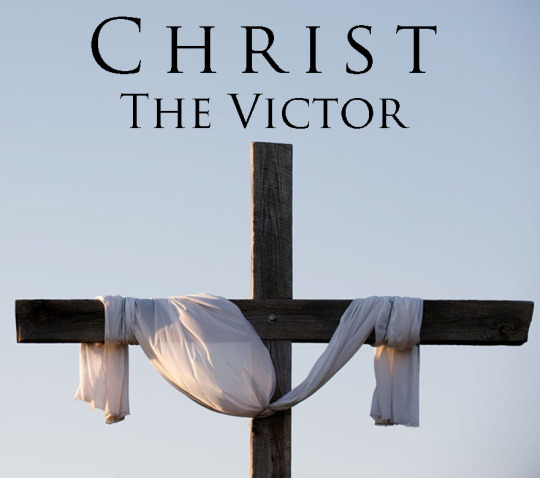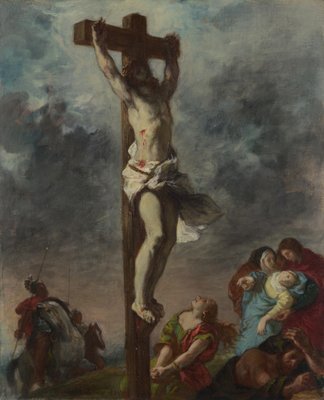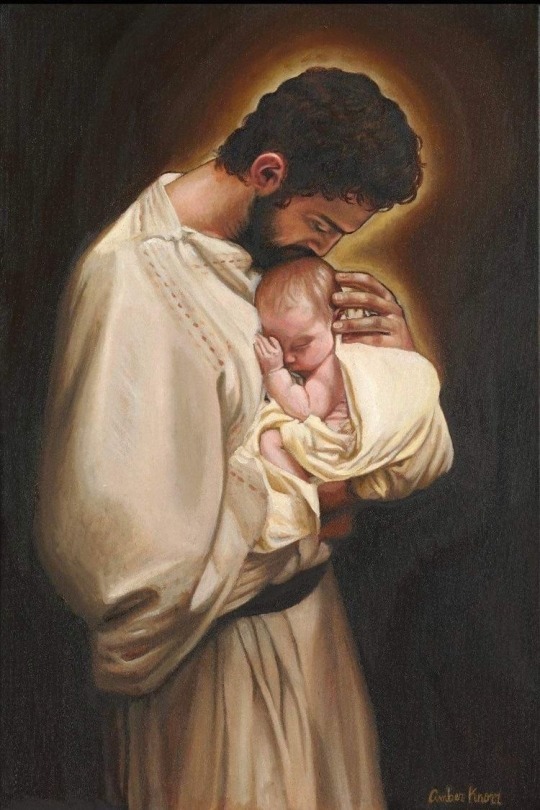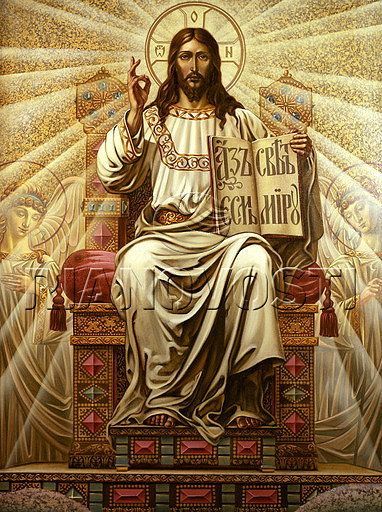#Christus Victor
Text
HER STORY: Christ's Ministry, The Cross - Symbol of Victory
Is the cross a symbol about death or life? defeat or triumph? humiliation or glory? Or all those things?
#Crossof Christ #Crucifixion #DiedforOurSins #ChristusVictor
Is the cross a symbol about death or life? defeat or triumph? humiliation or glory? Or all those things?
As I searched for answers, I became drawn to how Christians depicted crosses a thousand years ago and more, and that search became this fifteen minute video on the ancient symbols of Christianity.
From the eight-hundred-year old Batllo Majsty, now residing in in the Museu Nacional d’Art de…

View On WordPress
0 notes
Text
I love the smell of frankincense in the morning. Smells like... Christus Victor.
0 notes
Quote
Of course the idea that Jesus died in the place of sinners, bearing the punishment of God’s wrath due to them on account of their rebellion, is not the only thing the Bible teaches about the crucifixion. We find also, for example, that the cross was the means by which Jesus triumphed over evil powers (Colossians 2:15), that it offers an inspiring example to those who suffer unjustly (1 Peter 2:21-23), and that it brings about a decisive end to our old life of sin, that we might live as new people (Romans 6:6)
Pierced for Our Transgressions: Rediscovering the Glory of Penal Substitution, Steve Jeffery (Author), Michael Ovey (Author), Andrew Sach (Author), John Piper (Foreword), p. 33

#focr#focr 39#subbed#christus victor#Pierced for Our Transgressions: Rediscovering the Glory of Penal Substitution
0 notes
Link
What I got when I typed “Sympathetic Magic” and “Substitutionary Atonement”, together, into my browser. Fun stuff.
0 notes
Photo

Christus am Kreuz, 1853 von Ferdinand Victor Eugene Delacroix
#kunst#kunstwerk#art#artwork#ferdinand victor eugene delacroix#künstler#artist#religion#religiöse kunst#religious art#jesus#jesus christ#christus#christ#death#tod#kreuz#cross#kreuzigung#crucifixion#corpus#körper#body#bibel#bible#trauer#sadness#glaube#faith#beten
17 notes
·
View notes
Text
And you, who were dead in your trespasses and the uncircumcision of your flesh, God made alive together with him, having forgiven us all our trespasses, by canceling the record of debt that stood against us with its legal demands. This he set aside, nailing it to the cross. He disarmed the rulers and authorities and put them to open shame, by triumphing over them in him.
Colossians 2:13-15 ESV
It is not "Penal Substitutionary Atonement OR Christus Victor" it is BOTH AND
15 notes
·
View notes
Text
okay so this all kind of started for me back in undergrad when I took critical issues in theology—we had a unit on atonement theories, and most of them were like “oh, Jesus saves us by paying our debt” or “Jesus saves us by ransoming us” and then there was christus victor, which I had never heard of, coming in from left field like “the point is that Jesus beat death” and mostly I didn’t like it because I’d been taught penal substitution all my life and I wasn’t ready to ditch it
then somebody in class was like “wait are these mutually exclusive?” and the teacher was like, “hmmm—I guess not really.” And that made everything easier—all the atonement methods we’d been just then taught had scriptural backing, so it made most sense just to say that they all described a part of what Jesus had done
(I hadn’t thought of it before because the theological issues we’d been discussing up until that point in class had had contradictory solutions—atonement theory was a much more relaxing unit because we just got to sit and get excited about things Jesus accomplished instead of trying to sort out issues that have been causing division for ages)
but yeah basically I was way more willing to accept the idea that Jesus’ death and resurrection had conquored death and satan etc. when I didn’t also have to throw out the idea that they’d also saved us from our own evil
#cw christ#guys i swear im trying to get to the point it’s just a complicated point#salt and light#hey! griffin!
14 notes
·
View notes
Note
What do you say to the Christians who tell you to “give your homosexuality up to God”? That He’ll take it away if you love and trust him enough? I’m a side b Catholic. I know that my relationship with God is pretty good (though of course it’ll never be perfect unless I get to Heaven), and I feel like He’s not going to take away my SSA anytime soon, if ever. People keep telling me that they know people who’ve had SSA put God had delivered them from it, and that if I trust Him more that the same will happen with me… I just don’t know how to respond to it. Logically I know that everyone’s spiritual journey is different, but these comments have kinda been getting to me…
Sorry to just dump all of this, but you’re pretty much the only approachable side b person I know and I would appreciate whatever advice you may or may not have.
Hey 🐝 nonnie!!
So I’ve seen and interacted with these folks myself, and have gone through some crises of faith because of them, too! Probably not what they had in mind 😂
Viewing it with charity, I’d like to say Offering it Up To God is in fact the correct response as a queer Christian. However, Side B people do this already, by assenting to the Christian tenets on marriage and sexual acts; it seems they think our offering Cainian, and they have the Able solution.
As such, there are some fundamental theological statements these people are often making when they charge queer folks to simply Pray the Gay Away, ones that they have not considered the full ramifications of:
God has promised to remove all temptations (gluttony, sloth, wrath, greed, pride, envy included) from our lives if we pray hard enough.
Offering up my sexual desires is only necessary for the non-hetero.
Temptation = sin.
One can only be “saved” if one is truly free from all temptation.
It is necessary to be straight to enter the Kingdom of Heaven.
Objections / Responses:
God has made no such promise. “My yoke is easy and my burden light” (Matthew 1:13) implies that there is still a burden to bear, a yoke to shackle, a cross to carry, to in order to follow Christ. “For just as the sufferings of Christ overflow to us, so also through Christ our comfort overflows.” (2 Corinthians 1:5)
Offering up sexual desires to God is not unique to queer folks. Consider the straight person who struggles with lust/pornography/erotica, the religious who has taken a vow of celibacy, the single person who is not in the confines of marriage, the married person who has desires outside the confines of marriage (or in our own Catholic faith, desires which are non-procreative and dis-unitive). All are required.
The Lord was tempted in the desert, and is still free from sin as True God and True Man. Temptation =/= sin. “For in that he himself hath suffered being tempted, he is able to succour them that are tempted.” (Hebrews 2:18)
While my knowledge of Protestant theology of salvific justification is limited, if one is saved by faith and not by works, ie repent and believe to be saved, “by faith the believer has Christ’s righteousness imputed to him or her once and for all and thereby is assured of God’s final favor even though he or she continues to be imperfect.” [source]
See objection the second.
On a personal theological level, I find the theology of atonement, ie the narrative of Christ’s Death and Resurrection, to be a far more coherent and compelling parallel to Side B theology than to Side X theology.
In the Christus Victor theory of Atonement, Christ undergoes death himself as a way to defeat Death, viewed as the ultimate price of the fall of Adam and Eve. There is no defiance of death / triumph of the resurrection without that physical, corporeal death on the cross!
And yet… evil still exists, even after Jesus’ resurrection.
St Paul encourages us:
“[T]o keep me from becoming conceited, I was given a thorn in my flesh, a messenger of Satan, to torment me. Three times I pleaded with the Lord to take it away from me. But He said to me, “My grace is sufficient for you, for My power is perfected in weakness.” Therefore I will boast all the more gladly in my weaknesses, so that the power of Christ may rest on me. That is why, for the sake of Christ, I delight in weaknesses, in insults, in hardships, in persecutions, in difficulties. For when I am weak, then I am strong.” (2 Corinthians 12:7-10)
In other words, in order to be perfected, in order to give Christ that ultimate triumph over myself, I think it’s actually good for me to be pierced with this queercoded arrow. (St Sebastian, anyone?).
For God’s power, mercy, and goodness is not revealed through the creation of his perfect angels, but in the weakness of man being made perfect through Him.
211 notes
·
View notes
Note
Reading your post about parenting, and I'm finding myself with a few questions. From my quick searching, I've figured that penal substitutionary atonement theory is that Christ was punished in place for our sins. If you don't believe that anymore, what is it you believe? That's the only thing I have ever heard as the reasoning for Christs suffering and Crucifixion, and I'm extremely curious what you believe was the purpose behind the Crucifixion, if not a substitution for our sins. I've done a little searching on that as well, but haven't really been able to find what other beliefs would be.
OH HELL YES LET'S TALK ATONEMENT THEORIES!!
Penal substitionary atonement theory (or PSA, if you wanna be brief), is the idea that Jesus died in our place to placate the wrath of God specifically. This is important; this is the penal part of that theory. The Reformers developed it (1500s), building off Anselm's satisfaction theory of atonement.
Google provides this quick summary of Anselm's theory: "Anselm's “satisfaction” theory of atonement posits that Christ's death on the cross functioned as a gift to God on behalf of humanity to restore the order of justice subverted by sin. Especially in recent years, the theory has been criticized for obscuring God's mercy."
So what are our alternatives? Good news, anon! You and I are blessed by my husband, a man well educated in church history and possessed of an insatiable need to research things!
The early church held largely to the ransom theory of atonement: that Christ's death paid a ransom to Satan to rescue us from him.
Christus Victor was another theory held by much of the early church, and forms a part of my own (somewhat nebulous) current beliefs regarding atonement. It is "...the model of atonement which, according to Kristian, speaks of “Jesus redeeming us from oppressive powers—sin, death, the Devil—to whom we'd bound ourselves by our own treachery. Christ 'disarmed' those powers and triumphed over them on the cross (Col. 2:13–15)."
(Side note: Christus Victor and ransom theory are very similar, but Alex insists there are nuances and differences. Apparently ransom theory in various forms was the dominant theory for the first thousand years of post-Christ church belief.)
Google pulled that quote from this blog: https://www.samstorms.org/enjoying-god-blog/post/the-christus-victor-theory-of-the-atonement-whence-the-victory
Sam Storms argues against Christus Victor as incomplete, asking how humanity came to be in bondage to the devil and asserting that personal sin is the answer. I'd argue that Romans says we fell through Adam as well as our own failings, but I honestly don't think that's the larger issue.
The larger issue is how you understand God's base disposition toward humanity. In my opinion, PSA frames God as, at His core, angry with humanity due to our sin and standing in punitive judgment, but for Himself standing in the gap.
Christus Victor, the scapegoat theory of atonement, and the moral influence theory of atonement (a term I just discovered in googling to respond to you!) all frame God's base disposition as that of love, reaching out to redeem humanity.
Now, what theory you personally hold is up to you. We have over two thousand years of church history and we have multiple forms of orthodoxy when it comes to atonement theories. Let me share with you the article from which I pulled the "moral influence theory" by way of wrapping this up.
There are fewer doctrines in Christianity of which one can truly say "This is the only way the church believes" than one might think. Not all Christians believe in original sin. Not all believe in a fiery hell. And not all believe Christ died to absorb the wrath of God.
They do believe in Christ their Savior. However, church history demonstrates there's room to debate what exactly we're saved from. Orthodoxy is believing in atonement. It doesn't dictate the reason for the atonement.)
(For further reading, I highly recommend Brian Zahnd's "Sinners in the Hands of a Loving God." I recommend this so highly that if you'd like to DM me your mailing address, I will buy a copy for you.)
#i'm so delighted by this question#thank you!!#and it makes sense you couldn't find alternatives#I didn't know of others till Alex told me#and I found these definitions and articles because I already knew what to google#made life way easier#anyway#church history#atonement theories
16 notes
·
View notes
Text
There’s a lot of negative feeling about the penal substitutionary atonement model of the crucifixion (that Jesus chose to take the punishment humanity were due), especially among progressive circles, and I think there are a lot of valid criticisms of it: it’s often framed very barbarically, it can pit Jesus against the Father, it can over-emphasise the sinfulness of human beings and over-literalises ‘the wrath of God’ in a way that makes God seem like deep down he hates us but begrudgingly chooses forgiveness instead.
But there are at least 3 redeeming features I think this motif can have, provided it’s not understood as the rigid be-all-and-end-all it often is.
1) Whatever way you slice it, whatever alternative lens you want to use, even if Jesus’ death wasn’t ‘penal substitutionary atonement’, it was still probably penal (he died horribly as ‘punishment’ by the Romans), it was still substitutionary (in the sense it was to save human beings from death), and it was still atonement (it had some kind of salvific effect). I find it hard to get too precious about PSA when the broad elements are all there in the other classic theories of atonement. At its core the cross is a scandal because it’s about God wrenching resurrection and hope out of a violent and horrific death; I feel like some criticisms of PSA in favour of Christus Victor etc are just trying to de-scandalise an inherently scandalous concept.
2) In a twisted sense I think the horrifying nature of PSA supplements the horrifying nature of being crucified to death very well – and mistake PSA advocates often make is that they not only miss this but try to frame it as the only truly just solution. PSA advocates will say that Jesus’ death was necessary for God to maintain his mercy alongside his justice; he has to punish someone for humanity’s sins, so Jesus steps up to take his place. And rather than this becoming another fucked up thing about the situation, about the depths of horror happening in the crucifixion, PSA advocates frame this as a mark of divine justice. God is so merciful he gave Hitler a stay of mercy and then because he’s so just let Mother Teresa get executed in his place. The very concept of Justice becomes extremely muddled.
When PSA becomes a commentary on the nature of what justice is and what mercy is and how to satisfy both, I think it becomes extremely muddled. But what I think is valuable about PSA is this idea of God taking upon himself a punishment he didn’t deserve for the sake of human beings and hence destroying the very notion of ‘deserved’ punishment. Ideas that woe is a punishment for sin and happiness a reward for virtue are destroyed by the crucifixion of God.
3) I think it allows us to reinterpret a lot of the judgment and violence God promises or enacts throughout the Bible (including the OT, yes, but let’s not forget Revelation as well). All those punishments God threatens or dishes out? All that wrath he pours out in plagues and famines and destroying angels? He took it upon himself. God doesn’t dish out what he can’t take; and indeed, he’s not just willing to take it, but to take it so we don’t have to. He is the Judge judged in our place.
There’s an article by the Catholic priest and theologian James Allison (https://jamesalison.com/creation-fulfilled-and-the-book-of-revelation/) where he makes the interesting suggestion that the point of the extreme divine violence in the Book of Revelation is to convey this idea that the wrath of God is ‘exhausted’. Rather than just saying ‘oh well God doesn’t punish people after all,’ the author has God throw absolutely everything at the wall to show God ‘getting it out of his system’. All the promised curses of Deuteronomy are finally fulfilled, and thus exhausted, and beyond this cataclysmic judgment lies mercy and restoration.
Now, Allison writes about Revelation, not the crucifixion, and ironically does so from a Girardian perspective that is much closer to ‘moral influence theory of atonement’ where Jesus’ death exposes the unethical systems that undergird our societies. Allison is not endorsing PSA.
But I think PSA can convey a similar kind of idea to what he’s talking about here. The judgment of the world has taken place, and it took place on the cross; the much-feared wrath of God has been exhausted.
Now, I don’t know that this necessarily means all talk of wrath is defused – as I’ve said before, there can be much value to notions of divine judgment (which =/= eternal conscious torment in hell) as a cleansing of injustice and oppression. But at the very least we cannot read biblical threats of future judgment and wrath without a serious detour by the foot of the cross.
2 notes
·
View notes
Note
what makes eastern orthodox christianity different? And why have you chosen this over other religions?
Hi!
Thanks for your interesting question :)
Do you mean different from other Christian denominations? Or different from other religions in general?
I'll start with Christianity because, well, that will be much simpler lol. Please bear in mind I'm not trying to rag on others' beliefs, but it may come across that way, as I do have strong held reasons for not belonging to another denomination. I am also going to assume that you are at least somewhat familiar with different Christian theologies; my apologies if this is not the case! Please do let me know if you would like clarification of anything I've said :)
If I had to boil it down, ultimately the Eastern Orthodox perspective of God and who God is is just radically different to Western (using this very loosely) Christian interpretations. God is described in Orthodox prayer as "the one who loves mankind/humanity", He is a physician to the sick (soul and body). Our concept of sin is different; sin is "missing the mark". We have confession but it is not legalistic (there is no categorization of sin as mortal or venial as in Roman Catholicism), it is a way to seek healing and grow in godliness. Eastern Orthodox beliefs on redemption is primarily based on the Christus Victor model, that is that Christ died to defeat the powers of evil and their hold over humanity (death and sin) - there is no payment to the devil (ew) or to God, Christ's death is not to satisfy God's "anger" or settle a score, as in other atonement theories held by other Christians. Western conceptions of original sin also do not apply to our thinking/theology; we are not born with the guilt or stain of original sin, but rather share/inherit a fallen nature with temptation to sin, and suffer consequences such as death and illness. We "know where the Church is, we don't know where the Church isn't" - we do not make (or should not make...) judgements about what might happen to non-Orthodox Christians after death. There are also multiple Orthodox views/theories about "Heaven and Hell" but generally speaking we acknowledge that we don't know and it is never okay to say that someone "is going to Hell" and definitely don't believe that God "sends" anyone to "Hell"; I am personally fond of the interpretation that all are united with God after death and our experience of this is shaped by our choices and desire. Basically God is good and His creation is to (though sometimes we chose not to be).
Our practices also differ from other Christians, especially Protestant Christians (using the term very broadly as there is a wide range of different practices throughout the many, many Protestant denominations); we fast (a lot), have set prayers and daily prayers, we use a lot of bowing and prostration during prayer and also stand up for it and most of our church services, have a very liturgical tradition, women cover their hair for prayers/church (some do it all the time, and then of course some don't at all), use icons/candles/incense/oil/holy water/blessed objects in our prayer and liturgy, celebrate many many special holidays/feast days/name days, Pascha (Easter) is our biggest feast/holiday by far and is so unbelievably joyful, pray for the dead (with special services on appropriate days etc), women who have just had babies have a 40 day service for themselves and their baby, saints and the Theotokos especially are a big deal for us (they are not worshipped or gods, though)...
Now as to WHY I became Eastern Orthodox, well. I used to be Roman Catholic and I had a lot of issues with the theology, particularly the categorization of sin, original sin, and papal theology. It definitely did not help that I'm prone to scrupulosity (and am autistic with anxiety and OCD), but my relationship with God is much healthier now. My view of God is healthier. That said, I am in a bit of wobbly place spirituality-wise now as you might notice if you go through my #ask tag and/or trawl through this blog a bit lol.
I hope this helps? Let me know if you want to ask anything else :)
xx Maria
34 notes
·
View notes
Text
honestly bizarre to me that (some) progressive Christians talk about penal substitutionary atonement and Christus Victor theory of atonement as if they are opposed to one another ie "I believe in Christus Victor instead of substitutionary atonement." Like these two things are not opposites?? They are complements? Christ bore the wrath of God AND defeated the Devil, freeing the captives. An atonement theology that excludes either of these doesn't strike me as complete
4 notes
·
View notes
Text
On January 3 is the Feast of the Holy Name of Jesus

Amber Knorr: His Name Shall Be Called Jesus

JESUS LIVES, THE VICTORY WON. HAIL TO THEE OH CHRISTUS REX VICTOR by johnneswilhelms
#Holy Name of Jesus#Feasts of the Lord#God#Jesus#Christ#Jesus Christ#Father#Son#Holy Spirit#Holy Trinity#christian religion#faith#hope#love#stress reliever
9 notes
·
View notes
Text
Angélicos testes, sudárium, et vestes.
Surréxit Christus spes mea: præcédit
vos in Galilǽam.
Scímus Christum surrexísse a mórtuis
vere: tu nobis, victor Rex, miserére.

#catholicism#chiesa cattolica#christianity#spirituality#jesus christ#santa pasqua#pasqua2023#resurection#resurrezione
5 notes
·
View notes
Text
Fright Night in Georgia
Family discussion I want to preserve, kicked off by Herschel Walker's vampire musings, inspired by two of our family's favorite movies.
Your mother's comment: but vampires can kill werewolves on any night that's not a full moon.
emoji calculus — Today at 1:10 PM

STUPID MOVIE????
i can't believe he managed to find a way to lose further points from me
but he really went out of his way to call fright night a bad movie. for no reason
goldenj — Today at 1:12 PM
But he's thinking about it a lot. Which might be hard for him.
xavi — Today at 1:13 PM
obviously vampires can kill werewolves.
emoji calculus — Today at 1:13 PM
you just can't call fright night a "stupid movie" and then hypocritically use the excellent crucifix faith scene to tell people to vote for you

xavi — Today at 1:14 PM
that's like saying aquaman could defeat martian manhunter
yeah fright night is a bottomless well of great moments
emoji calculus — Today at 1:15 PM
yeah anyone can defeat martian manhunter as long as they have opposable thumbs and can operate a lighter
xavi — Today at 1:16 PM
well no wait I was saying martian manhunter could defeat aquaman
but I guess aquaman could use a lighter
well okay by that logic a werewolf could use a cross to defeat a vampire
even if he was a human.
well probably only if he was a human.
(side question: would crystals work on a vampire? like, for hippies?)
emoji calculus — Today at 1:19 PM
personally i'm a purist who believes that only symbols of the abrahamic God should work on vampires
xavi — Today at 1:19 PM
I mean I agree but I don't know what your reasoning is, I just don't like crystals
goldenj — Today at 1:19 PM
I think the point of crystals is that they don't work for anybody.
xavi — Today at 1:20 PM
okay that is the reality of crystals not the point of crystals
there are obviously some people who think crystals do work, which is why they might be ostensible vampire repelleant, if not for the fact that they're not a symbol of the Abrahamic God
emoji calculus — Today at 1:23 PM
i think assuming that the holy symbols as a vampire defense operates purely on humans thinking it will work is a milquetoast liberal watering down of the concept
to me "you have to have faith" implies that you have to have faith that God will intercede and protect you. it's not the human repelling evil, it's the divine repelling evil through the human
karen — Today at 1:30 PM
I can give you the entire explanation of why the cross works… It's about Christus Victor…where Christ's defeat of the enemy (evil, Satan) on the cross and resurrection is the turn of the ages. Jesus incarnate invades enemy territory and redeems it by the cross. That's why the cross is said to be powerful against evil. Crystals haven't such history.
Fleming Advent Study…
Of course
emoji calculus — Today at 1:31 PM
thank you fleming rutledge 💗 and thank you mom, that's quite fascinating!
karen — Today at 1:34 PM
Advent adds that on Judgement Day, Christ's coming again, all is made right. The war was won on the cross, but the battle with evil here continues until the second coming.
emoji calculus — Today at 1:35 PM
ah! yeah and then that clearly works very well with vampires and crucifixes as a metaphor
maybe this is how we bring back traditional advent. we lure people into it with advent-themed vampire media
karen — Today at 1:43 PM
I think Tolkien would agree… that what he was doing, in a way.
#Herschel Walker#Fright Night#Vampire#Werewolf#Aquaman#Martian Manhunter#Crucifix#Fleming Rutledge#Discord#Now I'm wondering what percentage of Tumblr posts have a completely unique tag combination.#love my family
2 notes
·
View notes